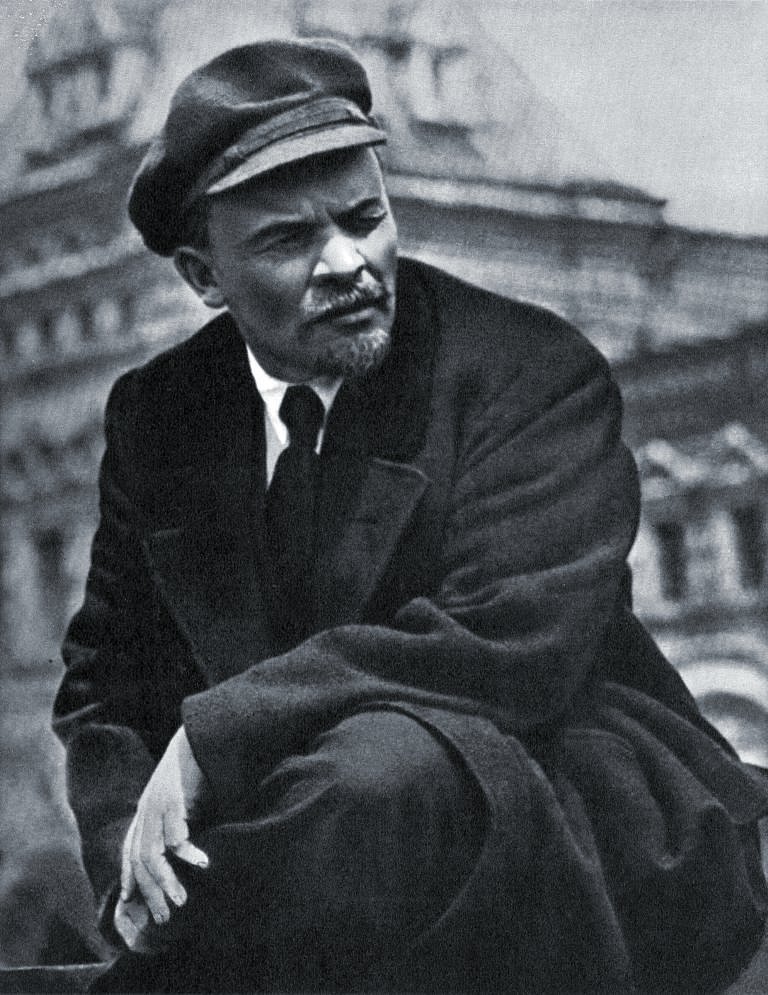

V.I. Lenin
Lenin is the recognized leader of the political party that directed the working-class’s seizure of state power in Russia in the fall of 1917. For the first time in history, a subject class was placed at the head of society.
Lenin had built the Bolshevik Party, later the Communist Party of the Soviet Union, and he was the architect setting up the framework of the new multinational state of many peoples, stretching from Eastern Europe to Siberia, from the Arctic Sea to Central Asia.
Lenin, whose real name was Vladimir Ilich Ulyanov, died from a stroke at the age of 53 on Jan. 21, 1924 — 90 years ago. We know that no revolution can be the work of a single individual. Tens of millions of human beings whose life conditions drive them to understand the need to struggle and sacrifice need to participate and cooperate to bring such a revolution about. More than any other single individual, however, Lenin was responsible for the workers’ victory in Russia.
This revolution and the Soviet state aided, inspired and supported the uprisings that liberated many of the oppressed countries from imperialism and workers from exploitation during the 20th century. The USSR, a product of the 1917 revolution, was the greatest nightmare for the imperialist ruling class. For that reason, the bankers, billionaires and their paid propagandists made the Soviet Union a pariah state and hated Lenin more than any other single individual in history. To this day, he remains the number one historical enemy of the rich.
At the same time, Lenin remains a beacon for those who want to struggle. This is especially true for revolutionaries living in the industrialized and urbanized countries that are part of the imperialist world and where the masses most often live in cities. They want to construct a framework to facilitate a revolution that overthrows capitalism and starts to build a new world where exploitation and inequality are eliminated.
Lenin’s contributions to revolutionary history are rich. Others will undoubtedly make their own additions to the four lessons listed here, which remain essential to carrying out class struggle in the 21st century:
Lenin’s analysis of world imperialism, written during World War I, underlined the inevitability of the drive toward war and conquest growing out of the capitalist system when it had become a worldwide phenomenon.
Lenin’s analysis of the “national question” and how communists should relate to the struggle of peoples and nations for self-determination, including independence, united the communists and the movements for liberation throughout the colonial world.
Lenin’s approach to organizing a working-class party. He outlined this in his 1901 pamphlet, “What Is to Be Done,” and carried it out through the 1917 revolution and beyond. Lenin’s work was specific to the reality of Czarist Russia of that period, but the principles he laid out for creating a party that is an instrument of effective working-class struggle have remained intact since.
Lenin extended Karl Marx and Friedrich Engels’ analysis of the capitalist state in his work, “State and Revolution,” which he wrote in August and September of 1917 while forced into hiding. The imperialist states have grown even more weaponized and bureaucratic since that day, as have the capitalist states in Asia, Africa and Latin America. This pamphlet has the happiest of endings, as Lenin noted in explaining why he had to stop writing: “It is more pleasant and useful to go through the ‘experience of the revolution’ than to write about it.”
He not only experienced that revolution but led it. It was the major factor in the history of the 20th century until it was reversed in 1989-1991.
To open the study of Lenin in this 90th year after his death, we’d like to call attention to an article written by late-Workers World Party founder Sam Marcy in 1992, which is available online at tinyurl.com/jw8mm6v. This work, written after the disappearance of the Soviet Union, analyzes the enormous problems that the Bolsheviks faced in the period just after the 1917 Revolution. It is a good way to begin to appreciate the contributions of Lenin.
The following updated article was originally posted on April 3, 2024. This April 4 will…
Boston Protesters gathered outside the Roxbury Crossing T-Station near the Islamic Society of Boston Cultural…
Over 175 people demonstrated in Philadelphia on March 31, taking to the streets from 30th…
Download the PDF. Download B&W version. Don't buy cars from Nazis Tesla 'smells like fascism'…
Portland, Oregon Fifteen groups endorsed the rally and march in Portland, Oregon, on March 30,…
Hundreds of people — including the marching band BABAM (the Boston Area Brigade of Activist…